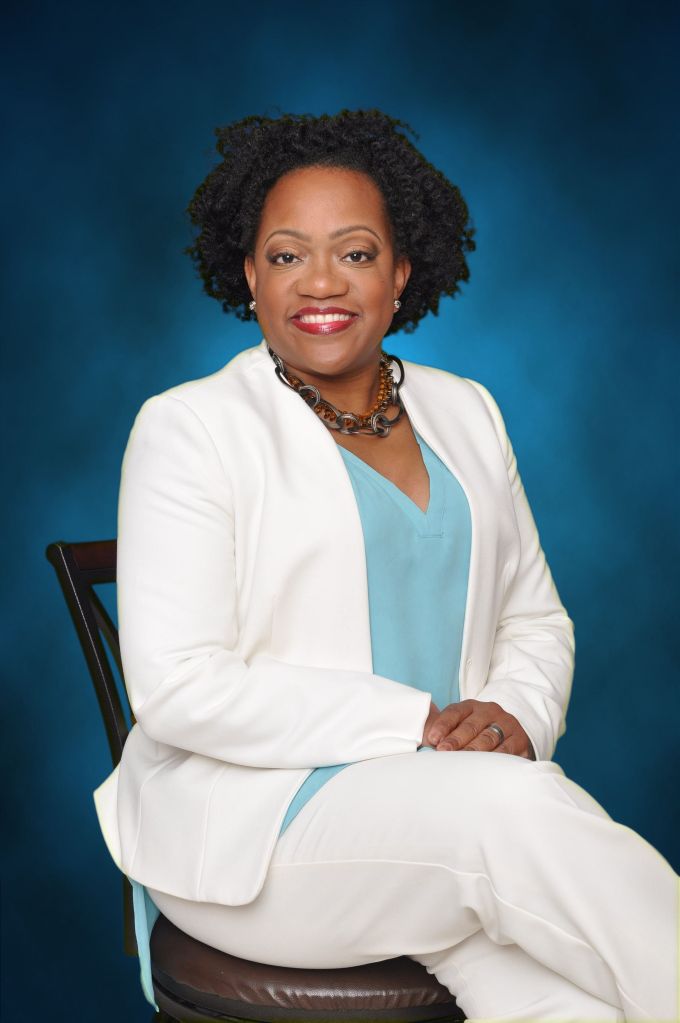
Dr. Spinks-Franklin is a developmental behavioral pediatrician in the Meyer Center for Developmental Pediatrics at Texas Children’s Hospital and assistant professor of pediatrics for Baylor College of Medicine. Dr. Spinks-Franklin is associate fellowship director for the developmental-behavioral pediatric fellowship at Texas Children’s Hospital/Baylor College of Medicine.
In addition to evaluating children with developmental and behavioral concerns, her research interests investigate the cultural aspects of child developmental, including how racial and ethnic identity development influence academic outcomes in children and outcomes of children who have been adopted.
Dr. Spinks Franklin answers your questions below:
As a educator, how can I recognize or help kids or a loved one who experiences toxic stress?
I suggest helping the adult seek mental health help. There are psychologists and psychotherapists who are trained to help children and adults who have survived trauma and toxic stress.
There is information about Adverse Childhood Experiences (ACEs) on the CDC (Centers for Disease Control and Prevention) website and how ACEs can impact physical and mental health in adults.
You can look for a psychologist or psychotherapist on the Psychology Today website (type in your loved one’s zip code, and a list of providers will appear. On the left side of the screen, select the issues you need the therapist to address (e.g., trauma, depression).
I am concerned about my 10-year-old grandson. His mother is a stressor to him. She still struggles with motherhood, as she never planned to be a mother at the age of 21. My grandson is an academically bright child, but at home seems to have difficulty following directives. His behavior at times presents as defiance which causes him to be subjected to negative attention.
His mother’s reaction is explosive. She uses language that Is abusive. He has been subjected to this type of response for the past 3 years. I would say that, my grandson is verbally and emotionally abused approximately 3 times per month. He needs help, but so does my daughter.
Like I say, “Grandmothers save the world!” I am so thankful you recognize your daughter’s and grandson’s needs. Based upon your description, it is possible your daughter suffers from depression which affects her parenting. I also say, “Children do what they see and say what they hear.” Based upon the information you provided, your grandson seems to be reacting to the stress at home.
Verbal and emotional abuse are forms of toxic stress and Adverse Childhood Experiences (ACEs). You can learn more about ACEs and toxic stress on the Centers for Disease Control and Prevention (CDC) website. Please consider finding a mental health professional who has training and expertise in helping children, teens and adults who have survived or are experiencing trauma and toxic stress.
You can look for a psychologist or psychotherapist on the Psychology Today website (type in your loved one’s zip code, and a list of providers will appear. On the left side of the screen, select the issues you need the therapist to address (e.g., trauma, depression).
I would like to know if there are any therapists that I can bringing my grandchildren for evaluation. They are victims that live with domestic violence. Not only have their parents lived in an environment of domestic violence and I myself survived domestic violence. I am literally in tears right now. Because one of my grandsons possess several of the symptoms that the doctor spoke on this morning. I need the cycle of abuse to stop. Thanks in advance for your assistance.
My heart is saddened by what you have shared, and I am pleased to hear you are motivated to help your family. Taking your grandchildren to a therapist is a great first step. I suggest finding psychotherapists who are trained and experienced in helping children who have experienced trauma or toxic stress (such as domestic violence). The Psychology Today website has a national database of mental health professionals; type in your grandchildren’s zip code to find local therapists. Then you can click on specific issues (e.g., trauma) from the menu on the left side of the screen. Finally, if you may find more information and guidance 24/7 from the National Domestic Violence Hotline 800-799-7233.
How does this toxic stress affect kids mentally and emotionally as they get older?
Toxic stress affects children’s brain development, immune system and DNA. Toxic stress causes problems in the parts of the brain responsible for learning, memory, self-control, and problem solving. This can increase the risk for learning problems, behavior problems, depression, anxiety, substance abuse, etc.
Toxic stress causes problems with the immune system, which puts children at risk for developing all kinds of medical problems as adults, such as heart disease, stroke, cancer, autoimmune diseases, etc.
Toxic stress changes how the DNA and genes are expressed in the child’s body and can be passed on to the next generation. Children, teenagers and adults who have experienced toxic stress should receive mental health help from trained psychologists or psychotherapists who have expertise in working with kids and adults who have survived trauma and toxic stress.
Can toxic stress cause UTI’s and bedwetting?
Not UTIs, but bedwetting can be a sign of stress (although normally developing children often wet the bed). Children who experience toxic stress can have higher rates of bedwetting than children who don’t experience toxic stress.
Are African-American children more susceptible to this type of stress than Caucasian children?
Since the African-American community experiences higher rates of parental incarceration, untreated mental illness in adults, and extreme poverty, Black children can experience higher rates of toxic stress than Caucasian children. However, toxic stress can affect all children of all racial and economic groups.
My grandson is having mental problems. Can I get a phone number or website to go to for help?
You can contact your grandson’s primary care doctor to get phone numbers to local mental health providers, like psychologists. If there is a mental health emergency (e.g., if your grandson is talking about committing suicide or hurting someone else), call 911 and ask for the Crisis Response Team or Mental Health Police–not the regular police; they’re not properly trained.
To the doctor, what type of help do you ask for if you’re an adult living with this ?
I am happy you’re reaching out for help. Please seek mental health help from local mental health professionals; you don’t need a doctor’s referral to see mental health help. The web site Psychology Today is a national web site that lists names and contact information of mental health providers. Type in your zip code into the web site and select the issues you’re concerned about. A list of providers will appear. Contact your local mental health agency or mental health crisis hotline in your area. The National Suicide Prevention Hotline is 800-273-8255 and they can provide you with help 24/7 if you are considering suicide.
Is it ever too late to seek treatment? I think this is my niece and she now has a four-year-old and I don’t want her to continue the cycle. But I don’t think she will seek help.
No. It is never too late to seek help! An adult who experienced toxic stress as a child can still get help from mental health professionals, such as psychologists who specialize in helping adults who have survived trauma and toxic stress. Contact your local mental health agency or try the web site Psychology Today which provides a national database of psychologists and psychotherapists; just type in your zip code.
I believe my granddaughter is experiencing this syndrome. At age 13 she has told me she’s depressed. I’m currently working with the Kinship Clinic trying to get temp custody so I can take care of her mental needs. How can I get more info to present this to the lawyers this Friday?
God bless you for helping your granddaughter. You can learn more about toxic stress and Adverse Childhood Experiences (ACEs) on the following web sites: Centers for Disease Control and Prevention (CDC) website or theHarvard Center on the Developing Child.
What about an adult with toxic stress?
Toxic stress can affect adults and children and lead to longer term mental health and medical problems, such as depression, substance use, heart disease, diabetes, etc. The adult should seek mental health help with psychologists or psychotherapists who specialize in helping people who have survived trauma.
Does this type of stress lead to or increase certain behaviors in adults, for example drinking, substance abuse or unhealthy relationships?
Yes, toxic stress or Adverse Childhood Experiences (ACEs) in childhood can increase the risk of substance use and alcoholism in adulthood as well as depression, anxiety, heart disease, cancer, stroke and chronic lung diseases.
I grew up watching domestic violence and could this have affected my immune system? I suffer from an autoimmune disease and am a constant worrier.
Yes! Toxic stress in childhood does affect the immune system by first putting the immune system in overdrive then suppressing the immune system over time; this can increase the risk of autoimmune diseases and other chronic health conditions.
I am a teacher what can I do or how do I recognize that my students have toxic stress syndrome?
Great question and thank you for your willingness to help your students. Toxic stress can manifest in many ways such as attention problems, temper tantrums, learning problems, poor school performance, disruptive behaviors, poor impulse control, fighting, etc.
The parts of the brain that toxic stress affects include parts of the brain responsible for memory, learning, problem solving and self-control. If you notice these signs in your students, consider asking your principal to bring psychologists or Licensed Clinical Social Workers into the school to work with these students or talking to the child’s parents about seeking mental health help for the children.
Please review the web site the Harvard Center on the Developing Child for more information about how toxic stress impacts child development.
My co-worker was just telling me her granddaughter’s grades were not good and she told her parents that the grades were theirs, not hers!! They are constantly cussing and fighting and moving from place to place! How can you expect her to do well in school? That toxic stress is real!
Yes, you’re right. Children growing up in very stressful environments often become very stressed and struggle to learn and do well in school.
Good morning, is toxic stress misdiagnosed as ADHD?
Unfortunately, toxic stress can be misdiagnosed as ADHD. It is important for the child’s doctor or psychologist to be told about the environmental factors in the home that could contribute to the child’s behaviors. Like I say, “All that bounces is not ADHD.” Sometimes trauma and toxic stress can look like ADHD, but it’s not ADHD.
Information about Adverse Childhood Experiences (ACEs) and toxic stress.
- Centers for Disease Control and Prevention (CDC) http://www.cdc.gov/violenceprevention/acestudy
- Harvard Center on the Developing Child developingchild.harvard.edu
- National Child Traumatic Stress Network
Information and help on domestic violence.
National Domestic Violence Hotline 800-799-7233
Information about children’s mental health.
Centers for Disease Control and Prevention (CDC) http://www.cdc.gov/childrensmentalhealth
To find local psychologists and psychotherapists.
Like BlackAmericaWeb.com on Facebook. Follow us on Twitter.

















